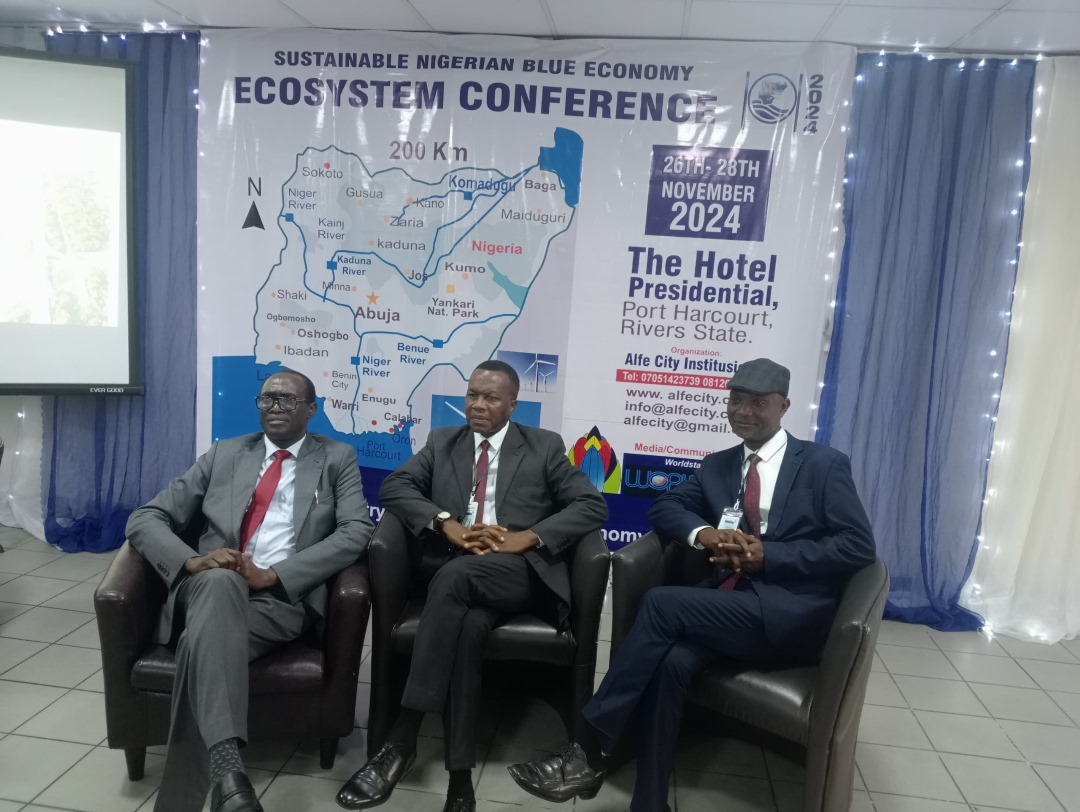
Experts in the maritime sector have stated that Nigeria’s blue economy has the potential to revolutionize the country’s economy, increasing its GDP from $407 billion to $1.5 trillion.
Presenting their papers during a three-day conference in Port Harcourt, Rivers State, Angus Chukwuka, President of the Admiralty Lawyers Society of Nigeria, and Soji Adeleye, CEO of Alfe Institution, noted that the country’s maritime development is lopsided and bogged down by geo-politics.
They argued that Nigeria’s blue economy has the potential to transform the country’s economy, but it requires concerted efforts to address the challenges hindering its growth.
According to Adeleye, Nigeria’s Exclusive Economic Zone (EEZ), which spans 200 miles into the Gulf of Guinea, is a treasure trove of untapped resources.
He noted that proper harnessing of this resource-rich zone could surpass the oil industry in revenue generation.
While pointing out that the Nigerian blue economy ecosystem encompasses various sectors, including shipping, fishing, oyster farming, and tourism, Adeleye emphasized that the blue economy has the potential to provide employment opportunities, stimulate economic growth, and reduce poverty.
He said: “The global fresh fish market size was valued at $228.3 billion in 2021 and is expected to expand at a compound annual growth rate (CAGR) of 2.6% from 2022 to 2028. Similarly, the global oyster market was valued at $1.7 billion in 2021 and is expected to grow at a CAGR of 5.5% from 2021 to 2030.
“With proper management and legislation, Nigeria can tap into the vast resources of its EEZ and become a major player in the global blue economy.”
However, despite its vast potential, Nigeria’s blue economy faces several challenges, including corruption, tribalism, and restrictive constitutional and legal provisions.
On his part, Chukwuka emphasized that Nigeria might appear to be ready for the blue economy regime due to its enviable coastlines and waterways, robust legislation, and regulations to guarantee sustainable shipping and a buoyant eco-friendly economy.
He, however, noted that the country is currently paying lip service to the revamping of the eastern ports.
He said: “To unlock the full potential of Nigeria’s blue economy, experts recommend the amendment of certain laws, including the NIWA Act and the 1999 Constitution.
“This will enable state governments to participate in the development and exploration of inland waters, leading to optimum utility and economic growth.”
Chukwuka also called for the amendment of Section 251 of the 1999 Constitution to give state high courts jurisdiction in certain maritime concerns, especially as it touches the states’ immediate coastlines and marine resources.
The conference, titled *”Sustainable Nigerian Blue Economy – Ecosystem,”* brought together key stakeholders, including representatives from the Nigerian Shippers Council, Nigerian Ports Authority (NPA), National Inland Waterways Authority (NIWA), and other industry players.
The conference provided a platform for experts to discuss the challenges facing Nigeria’s blue economy and to proffer solutions. It also highlighted the need for concerted efforts to address the challenges hindering the growth of the sector.






